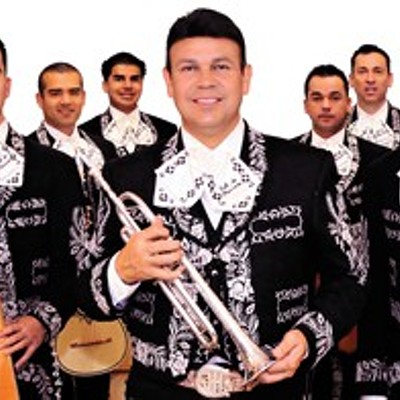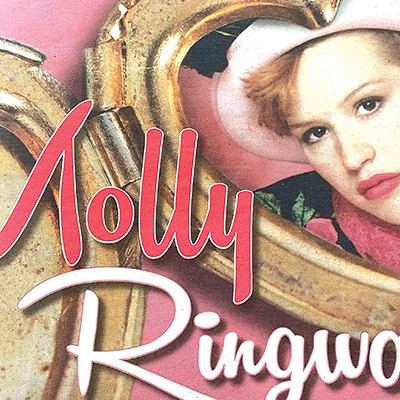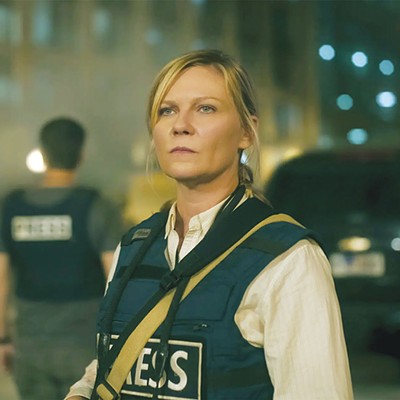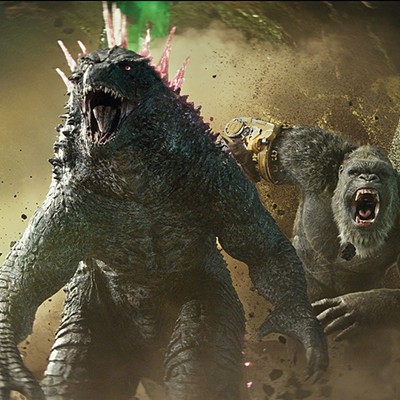Within the first two minutes of Cartel Land, the quality and moral depth of the film is evident. It is a nighttime scene as several men, presumably Mexican, unload ingredients from a truck and begin to cook meth in smoking drum barrels. At first, there is nothing terribly novel about the scene; a man, masked in a green bandana over his face and a hat pulled low, boasts that they have the best quality meth. He squats down in a pool of light glaring from the camera; a gun is strapped over his shoulders. But then he throws up his hands. "What can I say?" he exclaims with a tone of defeat. "We know we do harm with all the drugs that go to [the U.S.]." Three other men flank him in the dark; their faces obscured as well, one with a red blanket thrown over his head. The man continues, "But what are we going to do? We come from poverty. If we were doing well, we would be like you, traveling the world or doing good clean jobs like you guys."
It is a stinging indictment; the access to the scene and the honesty of the interview set the tone for the documentary film—and, undoubtedly, it is that quality that audiences at the Sundance Film Festival instantly recognized, making the film one of the most acclaimed productions at a festival that prides itself on the quality of documentaries selected, and also no doubt what Kathryn Bigelow, the Academy Award winning director for Hurt Locker, saw when she signed on as the executive producer. The film won the 32-year old film director Matt Heineman the Best Director Award and Special Jury Award for Cinematography in the U.S. Documentary Competition at Sundance.
That opening scene serves more as a moral bookend for the film than the primary storyline, as ultimately the movie is more about two men; one, a vigilante patrolling the Arizona border and a second, a Mexican doctor turned vigilante against the Templar drug cartel. Each is a charismatic, thoughtful antihero, and each is presented with all of their moral baggage.
Heineman was first drawn to the story by an article in Rolling Stone magazine about Arizona Border Recon, a self-appointed group of militants who patrol the U.S.-Mexican border for immigrants, often refugees from or drug mules for the drug cartels. Heineman filmed for four months before learning about another frontline battle against the drug cartels, a 55-year old doctor who was organizing against cartel members and violence in his town 1,000 miles south of the border; three of the doctor's friends had been beheaded and, as Dr. Jose Mireles explains in the film, he was choosing how he would die (by taking up arms against the cartel members). Since 2007, more than 80,000 Mexicans have been killed by cartel members, and another 20,000 have "vanished."
"When I first started, I thought it was a simple hero-villain story," explains Heineman in an interview with the Source. "But the line between good and evil became much more blurry."
Heineman continues, "On some level, this is a character portrait." He points out the similarities between the two main "characters"—the Arizona militant and the doctor-turned-vigilante: "Both are 55 years old; both believe their governments have failed them, and are taking the law into their own hands."
While either storyline could have stood well enough on its own, as parallel stories each draws out the moral ambiguity about taking the law into one's own hands, and the larger framework of a governmental failure; much like the acclaimed Traffic, a 2000 film that weaves together stories about drug users, law enforcement, and policymakers to present a larger discussion about the inevitability of the drug trade. But what is so chilling about Cartel Land is that it is a documentary—not a staged narrative film—and that director Heineman brings the viewer into the thick of the action. With cinema verite sensibility and point of view shots, he puts himself in harm's way—and the payoff is immense; an engaging, intimate, and frightening movie.
In one scene, a woman explains how her husband and neighbors were taken by cartel members, beaten, and killed in front of her, and she was raped repeatedly. That interview prefaces a vigilante raid on two local leaders of the Templar drug cartel—the very men who committed these heinous crimes. Heineman's camera lurches over vigilantes' shoulders as bullets fly, and he records (spoiler alert!) the moments the leaders are captured—and ruthlessly beaten. It is easy to side with the vigilantes' righteous anger and vengeance, but not without ceding the breakdown of due process and tossing aside a basic moral code.
Heineman's previous documentary addressed the healthcare system—a far cry from a frontline battle—and he says that he played down the danger to his girlfriend and family. "I did what any reasonable person would do," he says, "I did not divulge everything that was happening." Yet, it is difficult to not consider that meta-layer—the safety of the filmmaker and the intimacy that he has provided. "Every time we got into a car," says Heineman about filming scenes with Dr. Mireles, the doctor who helped spark a regional vigilante movement in Mexico, "he had a bull's eye on his back."
Unflinching and gritty in its journalism, Cartel Land is also sincere and considerate in its portrayal of two men fighting their quixotic battle against the drug trade. It is also nothing short of the best documentary of the year so far (disagree? submit your contenders to us as [email protected]), and a remarkable showcase for a new documentary director, Matt Heineman, to watch for in the years to come as well.
Cartel Land
Director Matt Heineman
Opens Friday, Aug. 21
Tin Pan Theater























